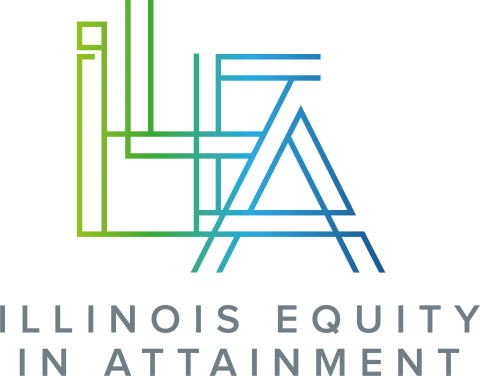Dear ILEA Partners,
In a really difficult year, what has kept us going at PCC is the tireless work being done by all of you across the ILEA network. You have shown incredible resilience as institutions, as leaders, as educators. You have also demonstrated deep commitment to students and your institutional missions. This is apparent in how you have reached out directly and regularly to connect with students; directed financial resources to them; obtained hardware and connectivity to continue online learning; provided for basic needs; changed college policies, timing, and procedures to center student needs; and so much more. This has all been done in an effort to enable students to persist with their college plans in the midst of the many hardships faced by all.
You have also stayed the course on your Equity Plans. The finalizing, publishing, and first year of implementation of the plans have coincided nearly imperfectly with the pandemic. And while much work and rethinking will be required to adjust to our current reality, the foundation has been laid and the work has not stopped. I have heard the stories you have told in our zoom calls. I have seen it in the news articles and read it in your tweets, presentations, and press releases. I have listened to your plans, inquiry, and response as we have looked at data together in our capacity building sessions. I have observed it as you have shown up for Equity Academies, core team meetings, webinars, and more. If anything, the work has accelerated.
We remain clear-eyed, but hopeful about the challenges in the months ahead. The overall decline in college enrollments this past fall has, as expected, continued into the spring. As with the effects of the pandemic, this has not been distributed equally across the higher education landscape. We have seen dramatic declines in enrollments for nearly all student groups, but the far greatest declines have been for students who are Black, Latinx, low-income, over 25 years old, and male. We are also seeing overall declines in enrollment for 18-20 year olds. This has hit many of our community colleges hardest, as they are those that serve the largest numbers of students who have been disproportionately impacted economically and physically by COVID-19. The average declines also mask significant variance across institutions. All of this has caused serious concern about if this will represent an educational pause for these students, or if it will become a lost slice of the college-going population. We cannot let it be the latter.
While many challenges remain that draw our attention, I remain hopeful about the year ahead. In the coming weeks we will celebrate with you as you graduate thousands of students from your institutions. We are awarding 19 Catalyst Grants totaling nearly $230K to ILEA colleges and universities for new approaches you will deploy. We will also highlight your work through the second annual Higher Education Matters campaign (May 10-14). As vaccination rates rise and you make plans to bring back greater numbers of students to campus in the fall, the PCC will continue to expand our programming to support your equity efforts in response to the significant feedback you have shared with us this year. We will enhance and expand our Annual ILEA Summit (November 3-5, 2021), Winter Equity Institute (February 24-25, 2022), and professional development offerings. We will also release the first Annual ILEA Report, document and elevate your work, launch a formal evaluation of ILEA, offer opportunities for dialogue across the network, and release a number of tools and resources on a revamped PCC website for you to utilize and access on demand.
As we look ahead to long summer days, I hope you all have a chance to enjoy some sunshine and reconnect with loved ones this summer. As we close out the most difficult year of many of our work and personal lives, we must prioritize time to care for ourselves, in order to continue to show up for our students and colleagues.
Thank you for your heroic efforts this year. Your work on higher education equity, especially in the midst of a crisis, will be a model for those across the country who will follow in your footsteps.
In partnership for equity,
Lisa


